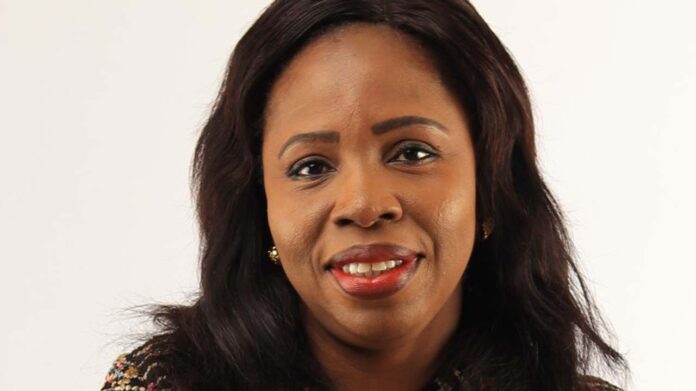By Sunday Aikulola,
Executive Director, Institute for Media and Society (IMS), Dr. Akin Akingbulu; Prof. of Applied Communication, University of Ibadan, Ayo Ojebode and former Head of Department, Mass Communication Department, University of Lagos, Prof. Abigail Ogwezzy have canvassed the need to strengthen media for optimal performance.
Speaking at a stakeholders meeting organised by the (IMS) in Lagos recently, where the participants identified challenges facing the profession, they insisted that there is need to bridge the gaps in media practice as the country heads towards the 2023 General Elections.
Ojebode, who spoke on “Giving Roots to Democracy And Democratic Culture: The Need For Media Introspection,” stressed the need for media independence.
While saying there is need to turn a torch on media organisation to see how they have compromised independence, Ojebode suggested that the media should set agenda, rather than report agenda of the political class.
According to him, when public office holders provide facilities such as vehicles and others to journalists, he then asked how do you want the media to be independent of such people?
Before the return to democracy in 1999, he observed that the guiding principle of journalists then was, “I would rather die than compromise professionalism.” He said he wondered if the way journalists behave now is the way they behaved then.
According to him, the press now focus too much on the nation’s capital, Abuja. He, however, adds there is need to also focus on the 36 governors.
Ojebode further argued that the media must do critical report of the electoral process. His words, “we focus on breaking news, but things like commentaries that would set agenda or influence opinions are hardly seen.”
On conflict reporting, the academic noted that the media has power to stem the tide of conflict by deliberate choices journalists make, using their experience, saying there is need to engage in inclusive reporting.
According to him, “we must also demonstrate inclusion in our media organisation. We cannot promote democratic culture if we do not practice inclusion. We need to be deliberate or purposeful internally before we can promote democracy externally.”
He asked, “the question is, is democracy in our organisations? Is democracy in NUJ chapters? Are NUJ elections better, in terms of being transparent and fair?”
Also, Ogwezzy, a member of Editorial Board of The Guardian Newspaper, expressed concern over poor representation of women in politics, governance and public offices in the country.
Speaking on the topic, “Women’s Participation in the Electoral Process: Some Reflections,” she noted that Sustainable Development Goal (SDG) 5, which focuses on gender equality, is threatened.
She said by 2030, countries of the world would not be measured by skyscrapers, but the actualisation of the SDGs, including Goal 5. She identified some challenges as, male hegemony, gender stereotypes and sociology constructs of women.
She goes further to say that women should be given accurate representation. To her, the media has also marginalised women. Based on a research she conducted, she said “there is gender bias against women even in advertising.”
According to her, the press must be deliberate in including women in their reports and give them a voice in order to enable them deepen governance.
Executive Director, Centre for Citizens with Disabilities (CCD), David Anyaele, stressed the need for media to use the right terminologies in reporting disability issues.
Speaking on “Disability Inclusive Media Coverage: My thought as we proceed to 2023,” he disclosed that there are more than 25 million Persons With Disabilities (PWDs) in the country.
Represented by Florence Austin, he said despite being marginalised, reports on disability issues are not enough, adding that accurate data are not captured.
He said there is need to promote their issues and media professionals must understand the laws that protect PWDs to report them effectively.
Akingbulu provided report on progress made so far on the Support to Media (Component 4A) of the European Union Support to Democratic Governance in Nigeria (EU-SDGN) Project implemented by IMS.
He said the EU-SDGN project was designed to run for 52 months, adding that the implementation started in 2017 and winding down in 2022.
He said, “our own component is called support to the media, with the objective that the media provides fair, accurate and ethical coverage of the electoral process.”
To enhance media professionalism, he stated that trainings on voter education and monitoring of media contents were also conducted. He said voter education materials such as jingles on radio and television were also provided.
He said skills acquired were put to use by media organisations. From research, he noted, “our colleagues in the broadcast industry want reform in regulation and legislation.”
In the area of inclusion, he said IMS worked on strengthening media engagement, promoting participation of women, youths and PWDs in the electoral process.
On strengthening the regulator, he added that IMS organised capacity building for colleagues in the regulatory agency, that is the National Broadcasting Commission (NBC). He disclosed that IMS also worked with other stakeholders to engage the amendment process of the NBC Act.
There was also public presentation of some publications. Participants at the stakeholders’ engagement include professionals from broadcast, print and online media, industry groups, academics and civil society organisations.


